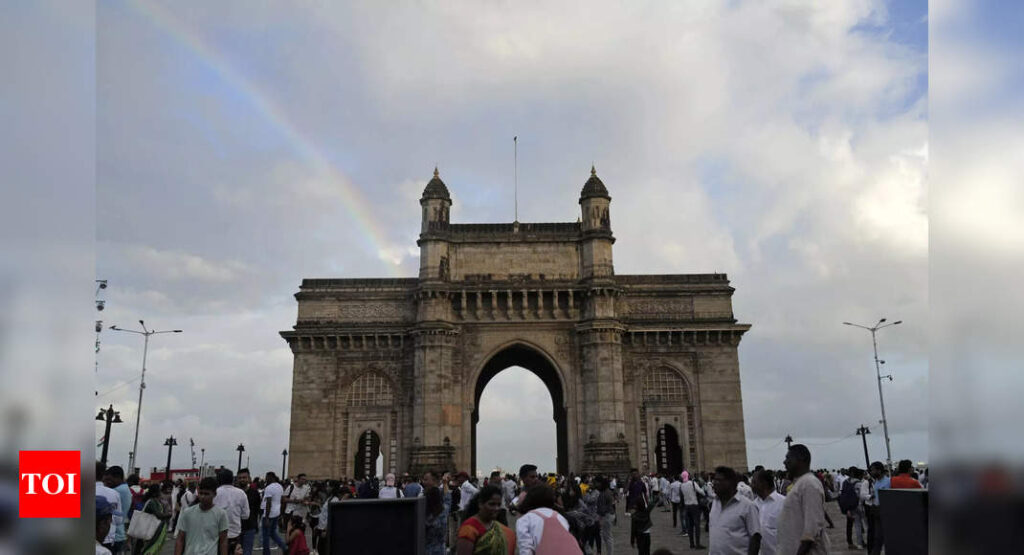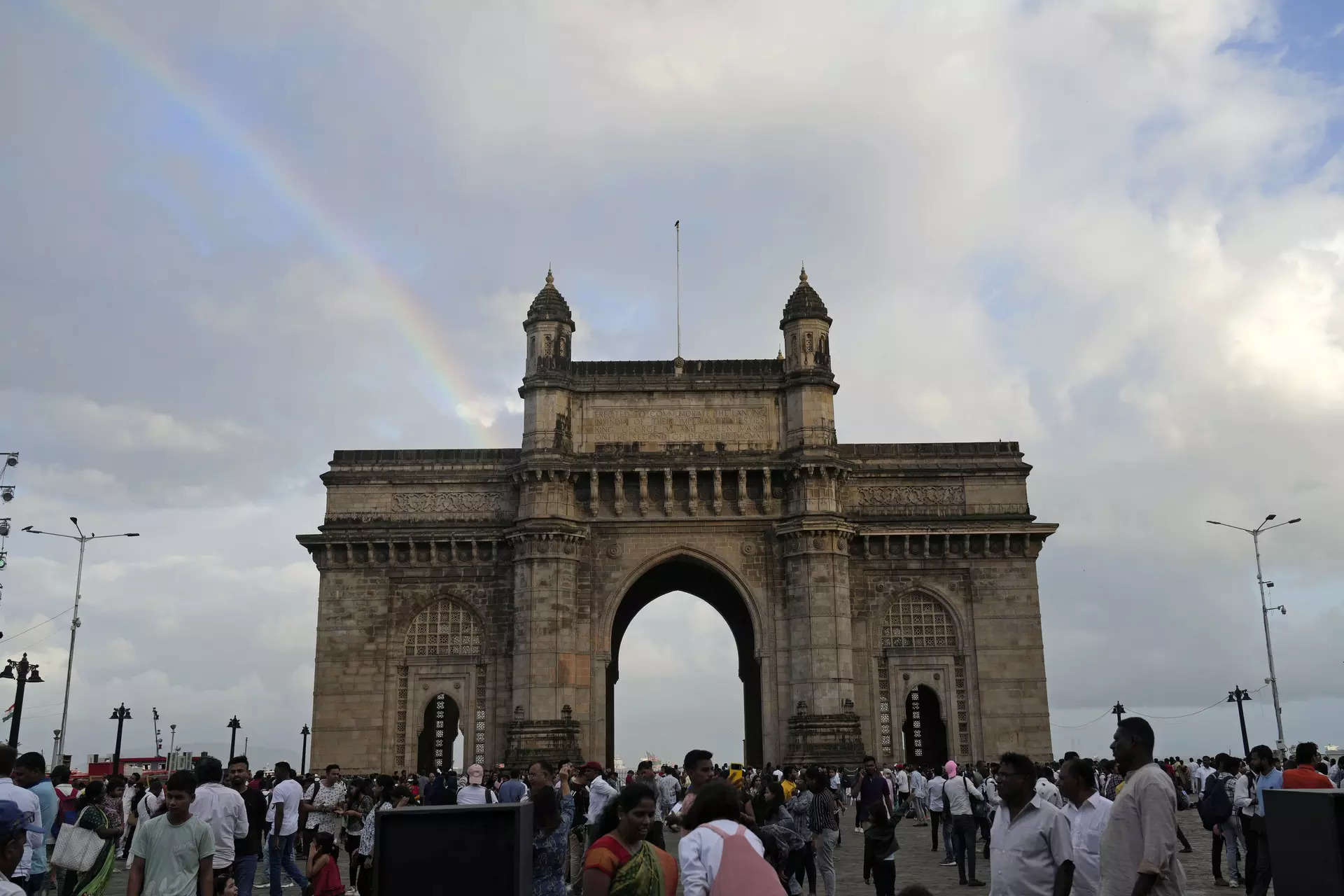[ad_1]
Hotel room rates in major cities from Boston to Mumbai are expected to jump by double digits, even after predictions that prices were finally hitting a ceiling, according to a new report.
Buenos Aires takes this year’s crown, with rates that are set to jump by 17% year over year, according to the Hotel Monitor 2024 report from American Express Global Business Travel released Thursday. It examines how hotel prices are fluctuating in more than 80 cities around the world, with forecasts based on criteria such as currently listed prices, broader macroeconomic trends, hotel pipelines and historic data.
Hotel prices reflect much more than a destination’s current popularity with travelers. In the Argentina capital, rates are largely being driven by the country’s ongoing hyperinflation crisis, which in September reached its worst levels since 1991. (Notably, the Amex study calculates rate hikes in the local currency.) In other words, the rising prices in Buenos Aires are still likely to translate to deep savings for most anyone visiting from abroad.
Second-place Mumbai has a more straightforward narrative. Its hotels are expected to rise in cost by 15% year over year; that’s undoubtedly a product of fast-growing domestic wealth and a long-delayed post-pandemic travel recovery. And given both of those factors apply country-wide, it’s no surprise that India claims three cities in the report’s top 10 list: Chennai and Delhi ranked fourth and seventh, respectively.
Rounding out the top 10 are cities where tourism has been booming. Whereas Cairo has benefited from a largely leisure-driven audience, Chicago, Paris and Boston rank in the top 10 thanks to gains in business travel. The region with the most moderate rate increases is Australasia, where no single city is seeing projected increases greater than 6.8%.
Prices are expected to rise at least somewhat in all 80 cities examined in the report.
David Reimer, executive vice president of global clients at Amex GBT, sees several macro trends continuing to influence hotel pricing at a global level. Staffing shortages continue to be a problem in the hospitality industry, forcing some hotels to limit inventory—meaning they’re leaving rooms deliberately unsold—as a coping mechanism. That spreads soaring operating costs among fewer customers.
Then there’s the issue of supply—the number of hotel rooms in any market—not keeping up with the demand.
“Where there is lagging supply but demand remains high, rates will also rise,” Reimer says. The inverse can also be true. Rates are predicted to rise only moderately in cities such as Riyadh and New York City, which will add a large number of new hotel rooms in the coming year. The report predicts that prices in those markets will be up 4.6% and 6.8%, respectively. (The report caveats that recent legislation curtailing short-term rentals in New York City may drive prices up in ways that are not reflected by Amex GBT’s data models.)
Boston, on the other hand, has few new hotels in the works—which will be problematic for consumers as the city continues to show strong growth as a business travel hub, in addition to its perennial leisure and university-related travel demand. That explains the city’s sharp 11.5% projected spike.
“Although there’s been a lot of talk with respect to the continuation of remote work, we’re seeing some kinds of business travel actually surpassing 2019 levels,” Reimer says. Specifically, it’s people traveling for trade shows or small internal meetings of 20 people or fewer, he says. At some companies, he adds, trips related to those more-intimate corporate functions have surpassed 2019 levels by as much as 25%. “We think that that will continue to be our fastest growing segment,” Reimer says.
Of course, even with the projected hotel rate increases, some of these cities still offer deep value. A room at an over-the-top hotel in Buenos Aires during peak season, for example, can cost just $600 a night; a 17.5% increase would add just a little over $100. Compare that to $2,000 a night in Paris during high season—the current going rate at a palace hotel—and the smaller-seeming 11% increase, valued at around $200, adds twice as much sting in absolute terms.
Here are the top 10 cities around the world where hotel prices are set to soar most dramatically—along with how much more you can expect to pay in local currency, compared to last year.
10. Jakarta, Indonesia: 10.9%
9. Boston, US: 11.3%
8. Paris, France: 11%
7. Delhi, India: 12%
6. Chicago, US: 12.6%
5. Bogotá, Colombia: 14.1%
4. Chennai, India: 14.6
3. Cairo, Egypt: 14.6%
2. Mumbai, India: 15%
1. Buenos Aires, Argentina: 17.5%
Buenos Aires takes this year’s crown, with rates that are set to jump by 17% year over year, according to the Hotel Monitor 2024 report from American Express Global Business Travel released Thursday. It examines how hotel prices are fluctuating in more than 80 cities around the world, with forecasts based on criteria such as currently listed prices, broader macroeconomic trends, hotel pipelines and historic data.
Hotel prices reflect much more than a destination’s current popularity with travelers. In the Argentina capital, rates are largely being driven by the country’s ongoing hyperinflation crisis, which in September reached its worst levels since 1991. (Notably, the Amex study calculates rate hikes in the local currency.) In other words, the rising prices in Buenos Aires are still likely to translate to deep savings for most anyone visiting from abroad.
Second-place Mumbai has a more straightforward narrative. Its hotels are expected to rise in cost by 15% year over year; that’s undoubtedly a product of fast-growing domestic wealth and a long-delayed post-pandemic travel recovery. And given both of those factors apply country-wide, it’s no surprise that India claims three cities in the report’s top 10 list: Chennai and Delhi ranked fourth and seventh, respectively.
Rounding out the top 10 are cities where tourism has been booming. Whereas Cairo has benefited from a largely leisure-driven audience, Chicago, Paris and Boston rank in the top 10 thanks to gains in business travel. The region with the most moderate rate increases is Australasia, where no single city is seeing projected increases greater than 6.8%.
Prices are expected to rise at least somewhat in all 80 cities examined in the report.
David Reimer, executive vice president of global clients at Amex GBT, sees several macro trends continuing to influence hotel pricing at a global level. Staffing shortages continue to be a problem in the hospitality industry, forcing some hotels to limit inventory—meaning they’re leaving rooms deliberately unsold—as a coping mechanism. That spreads soaring operating costs among fewer customers.
Then there’s the issue of supply—the number of hotel rooms in any market—not keeping up with the demand.
“Where there is lagging supply but demand remains high, rates will also rise,” Reimer says. The inverse can also be true. Rates are predicted to rise only moderately in cities such as Riyadh and New York City, which will add a large number of new hotel rooms in the coming year. The report predicts that prices in those markets will be up 4.6% and 6.8%, respectively. (The report caveats that recent legislation curtailing short-term rentals in New York City may drive prices up in ways that are not reflected by Amex GBT’s data models.)
Boston, on the other hand, has few new hotels in the works—which will be problematic for consumers as the city continues to show strong growth as a business travel hub, in addition to its perennial leisure and university-related travel demand. That explains the city’s sharp 11.5% projected spike.
“Although there’s been a lot of talk with respect to the continuation of remote work, we’re seeing some kinds of business travel actually surpassing 2019 levels,” Reimer says. Specifically, it’s people traveling for trade shows or small internal meetings of 20 people or fewer, he says. At some companies, he adds, trips related to those more-intimate corporate functions have surpassed 2019 levels by as much as 25%. “We think that that will continue to be our fastest growing segment,” Reimer says.
Of course, even with the projected hotel rate increases, some of these cities still offer deep value. A room at an over-the-top hotel in Buenos Aires during peak season, for example, can cost just $600 a night; a 17.5% increase would add just a little over $100. Compare that to $2,000 a night in Paris during high season—the current going rate at a palace hotel—and the smaller-seeming 11% increase, valued at around $200, adds twice as much sting in absolute terms.
Here are the top 10 cities around the world where hotel prices are set to soar most dramatically—along with how much more you can expect to pay in local currency, compared to last year.
10. Jakarta, Indonesia: 10.9%
9. Boston, US: 11.3%
8. Paris, France: 11%
7. Delhi, India: 12%
6. Chicago, US: 12.6%
5. Bogotá, Colombia: 14.1%
4. Chennai, India: 14.6
3. Cairo, Egypt: 14.6%
2. Mumbai, India: 15%
1. Buenos Aires, Argentina: 17.5%
[ad_2]
Source link











More Stories
India’S Growth Forecast: S&P ups India’s FY’24 growth forecast to 6.4% on robust domestic momentum
India to remain fastest-growing major economy, but demand uneven: Poll
Jack Ma: Jack Ma gets back into business with ‘Ma’s Kitchen Food’